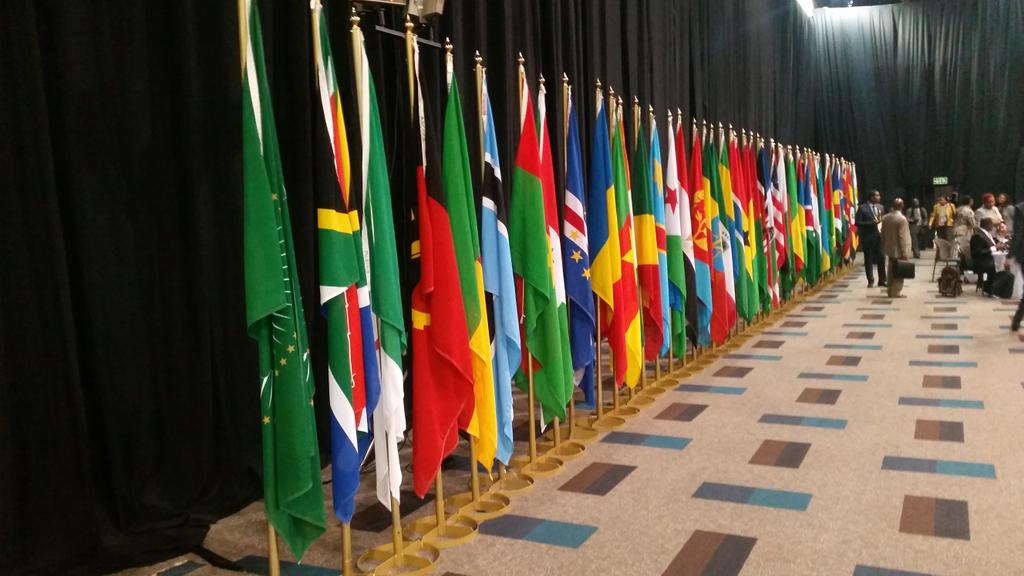
The merging of economies has never been an easy issue. While we on the local level are in the attempt to ensure we open our space for more commerce and the idea is noble. However, it has many hurdles before a true competent model emerges. At the same time the current situation in Europe is hardly an encouragement, as one country defaulting can lead to a spiraling effect whose waves are felt worldwide.
Even though the goodwill exists between each country and the joining in of other interested countries to form a block which is formidable with a common goal and a population advantage that makes commerce easy and a readily available market, some of the issues of significance in my view are as mentioned below:
The recent visit by the Kenyan president to Arusha, Tanzania brought out the fundamental issue of existence of non tariff barriers. There is substantial media coverage on this issue but the public at large and the smaller businesses have trouble understanding. Therefore, what exactly are non tariff barriers? Nontariff barriers are a way for one country to control the amount of trade that it conducts with another country. This may be for the good or selfish purpose of protection of its economy. This barrier often creates an economic loss and does not allow the markets to function properly.
Security: in order for a conducive business environment there must be the security that business demands. This is not relegated to just physical security but involves security of technology, information and assets and employee security.
Intellectual property: this is the most interesting area of concern when any business thinks of venturing across the border. Ones entire business is built on this recognition. So what is intellectual property? Â It is a product of human creation an idea that can only be protected upon expression. This comes in the forms of a trademark or a patent. For IT based companies or professionals who job is to invent will know the importance especially for the recent litigation wars between Yahoo and Facebook is anything to go by. A companies worth is the number of patents it owns.
Immigration: this becomes a crucial factor when you consider it is human beings that are the most important in any organization. When there is difficulty in the movement of labour in between countries it becomes difficult to operate. The lack of information and the difficulty in processing the required papers in a real roadblock to setting up a business. The right of residence in a neighboring country.
Corruption: the mother of all problems worldwide. We are no exception. Most European countries have also expressed the level of corruption in order to set up a business in Africa is too high. Tanzania has been reluctant to allow easy passage to Kenyan companies as we are so accustomed to move fast and in the process bend rules and regulations without a blink of an eye as this is what it takes to get things moving.
Legal process: in any country a sign of development is when the judiciary, police and all the processes to get a fair playing ground to business synchronizes to ensure speedy justice. Justice delayed is justice denied. Â This will include procedures, interpretation of laws, legitimacy and the professionalism of lawyers in the court room.
Synchronization of services: In many companies where they are already established and want to open factories or branch networks across the border, certification of their products and services in the neighboring country is a task. For example a FMCG company based in Kenya to get certification in the neighboring country has to go through the entire certification process to ensure the goods are as per standard even though they have been approved for local consumption by a competent government approved body in Kenya. This will also be applicable for registration of businesses, communication etc.
Consultants: from my experience the availability of local consultants who can guide as a one- stop-shop to set up a business is lacking and this is mainly due to the factors mentioned above. In order to get all the approvals, register a business, get office space, land for construction, register patent/trademarks etc is a challenge and the bureaucratic hurdles make it difficult for any business person to move forward.
In conclusion: this entire process of a common market is an excellent process that has kick started a larger possibility of a prosperous Africa which is self reliant like the Asian tigers showed us it is possible, a greater understanding of our cultures, which eliminate prejudice, bring in equal sharing of our resources, keeping in mind the environment for the entire good of the world and a better future for the generation to come. Â The only hope is that we will rise above self interest to make this a better, stronger and a competitive Africa.
Shafiq Taibjee
Corporate Consultant
www.shafiqtaibjee.com
